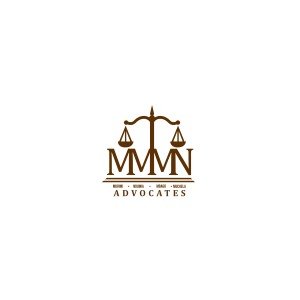Best Drug Crime Lawyers in Nakuru
Share your needs with us, get contacted by law firms.
Free. Takes 2 min.
List of the best lawyers in Nakuru, Kenya
About Drug Crime Law in Nakuru, Kenya
Drug Crime Law in Nakuru, Kenya centers primarily on the control, possession, transportation and distribution of illicit drugs. These can range from mild substances like marijuana to harder drugs like cocaine and heroine. Nakuru, like many other regions in Kenya, is heavily regulated by the Narcotic Drugs and Psychotropic Substances (Control) Act of 1994. The law imposes severe penalties for drug-related offenses, including significant fines and imprisonment.
Why You May Need a Lawyer
If you're implicated in a drug-related crime, such as possession, trafficking or manufacturing of illicit drugs, you'll likely need the expertise of a lawyer. Particularly in Kenya, these are serious offenses that attract hefty penalties, potentially including jail time. A lawyer can guide you through the complex legal process, defend your rights, negotiate on your behalf, and give your case the best possible outcome.
Local Laws Overview
The Narcotic Drugs and Psychotropic Substances (Control) Act of 1994 is the main legal framework for drug crimes in Nakuru. It prohibits the production, sale, use and possession of narcotics and psychotropic substances. Penalties range from heavy fines to life imprisonment. Some of the key elements of this Act include the prohibition of cultivation of any plant from which narcotic drugs can be extracted and the criminalization of the aiding and abetting in any of the offenses under the Act.
Frequently Asked Questions
1. What constitutes a drug crime in Nakuru, Kenya?
Any involvement with illicit drugs, such as possession, trafficking, production, and distribution can constitute a drug crime.
2. What penalties can one face for a drug crime?
Penalties include heavy fines and imprisonment. For more serious crimes, such as drug trafficking, the sentence could extend to life imprisonment.
3. Can a lawyer help in the event of a drug crime accusation?
Yes, a lawyer can guide you through the complex legal process, safeguard your rights, negotiate pleas, and help in shaping the best possible resolution for your case.
4. Are there any legal defenses against drug crime charges?
Yes, defenses may include questioning the legality of the search and seizure, disputing the actual possession of the drugs and proving a lack of knowledge about the drugs. A lawyer can best advise on which defenses apply to your specific situation.
5. Can drug offences be expunged from one’s record?
Expungement of records is a complex process that depends on the nature of the crime and the laws of Kenya. It's best to consult a lawyer for advice relevant to your specific case.
Additional Resources
The National Authority for the Campaign Against Alcohol and Drug Abuse (NACADA) offers information and resources related to drug crimes in Kenya. The Kenyan legal database provides access to extensive laws and regulations related to drug crimes.
Next Steps
If you need legal assistance related to a drug crime, it is advisable to contact a lawyer immediately. Ensure to not disclose any details to law enforcement officials without the presence of your lawyer, as any information provided can be used against you in court. Your lawyer will guide you through the judicial process, help build a defense strategy, and safeguard your rights throughout the proceedings.
Lawzana helps you find the best lawyers and law firms in Nakuru through a curated and pre-screened list of qualified legal professionals. Our platform offers rankings and detailed profiles of attorneys and law firms, allowing you to compare based on practice areas, including Drug Crime, experience, and client feedback.
Each profile includes a description of the firm's areas of practice, client reviews, team members and partners, year of establishment, spoken languages, office locations, contact information, social media presence, and any published articles or resources. Most firms on our platform speak English and are experienced in both local and international legal matters.
Get a quote from top-rated law firms in Nakuru, Kenya — quickly, securely, and without unnecessary hassle.
Disclaimer:
The information provided on this page is for general informational purposes only and does not constitute legal advice. While we strive to ensure the accuracy and relevance of the content, legal information may change over time, and interpretations of the law can vary. You should always consult with a qualified legal professional for advice specific to your situation.
We disclaim all liability for actions taken or not taken based on the content of this page. If you believe any information is incorrect or outdated, please contact us, and we will review and update it where appropriate.









